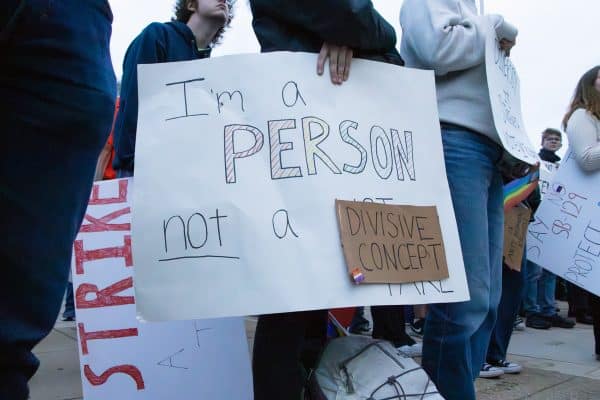Service jobs deserve as much respect as high-paying careers
September 13, 2018
Have you ever been browsing a clothing store with your friend and watched them pick up a shirt to see what it looks like, then crumple it and throw it back on top of the pile? Maybe you’ve eaten at a local fast food joint and watched someone leave their trash piled on their table, exclaiming, “cleaning that up is someone else’s job.” Why is it okay to defer personal responsibilities to others if the people we are burdening are employees? Why do some people have these attitudes towards employees of lower-paying jobs? And why is there such a stigma surrounding being a cook at McDonald’s or a cashier at a clothing store?
In our society, an alarming number of people do not have respect for individuals who are working low-paying jobs. Adults and adolescents consistently mistreat or devalue employees of establishments such as grocery stores, fast food restaurants, and retail businesses. Often, cashiers or restaurant servers are blamed for circumstances that aren’t directly in their control, such as long wait times or incorrectly made food orders. Any way you look at it, people need money to live and no one way of doing so should be viewed as better than another.
Contrary to what you may expect, studies have shown many employees of lower-paying jobs who work in areas like custodial work or the fast food industry experience even higher stress levels than high-up CEOs at large companies. This high stress is a result of an unpleasant combination: lack of choice associated with work and lack of resources to relieve stress. For example, a line cook at Wendy’s has almost no freedom in the work that they may do all day. They have to finish orders quickly to keep things running smoothly and cannot decide to take a break whenever they want to or sit down when their feet start to ache. A manager at a business office, on the other hand, can probably decide which task they want to work on first and can take a short break when they feel that they need to.
This lack of choice can result in high stress levels and high stress can cause health issues, some even as severe as high blood pressure and heart attacks. When an employee who works full-time at a minimum-wage job experiences this kind of stress, they may not have time or a safe place to exercise, access to healthy foods to nourish their bodies, the funds to engage in more leisurely activities, or even therapy or medication to help them cope. A higher-paid employee likely would have have more access to resources to allow them to deal with the unpleasant mental and physical effects of their job. Also worth noting, most lower-paying jobs take a noticeable physical toll on the body, forcing employees to stand or sit in one position for long periods of time and do repetitive motions that may put unnecessary wear and tear on their bodies.
Another common misconception is that people working in lower-paying jobs are lazy or just not working hard enough. It is unfair to make these assumptions without knowing an individual’s personal situation. Perhaps people working in these jobs grew up in a home where their family members had to work one or more of these kinds of jobs to make ends meet, and didn’t have the time, resources, or knowledge to help their children get on a path to attain a higher-paying career. Or maybe someone who works part-time at a low-paying job grew up in a family with college-educated parents but the individual does not feel college is the right fit for their goals and they are saving their money to attend vocational school to pursue a career path that is more interesting to them.
Next time, before you don’t leave a tip, choose to put an item back where you know it doesn’t belong for your own convenience, or make a snappy comment at an employee because you are annoyed, remember that for some people, these jobs are more than a part-time summer gig, but rather, are their livelihoods. There is no need to make anyone’s job any harder than it has to be. A principal of a school probably wouldn’t throw a piece of trash on the floor in the main office for their secretary to pick up “because it’s their job”. Everyone deserves respect, whether they make a living working a low-paying job or have a comfortably paid career.











